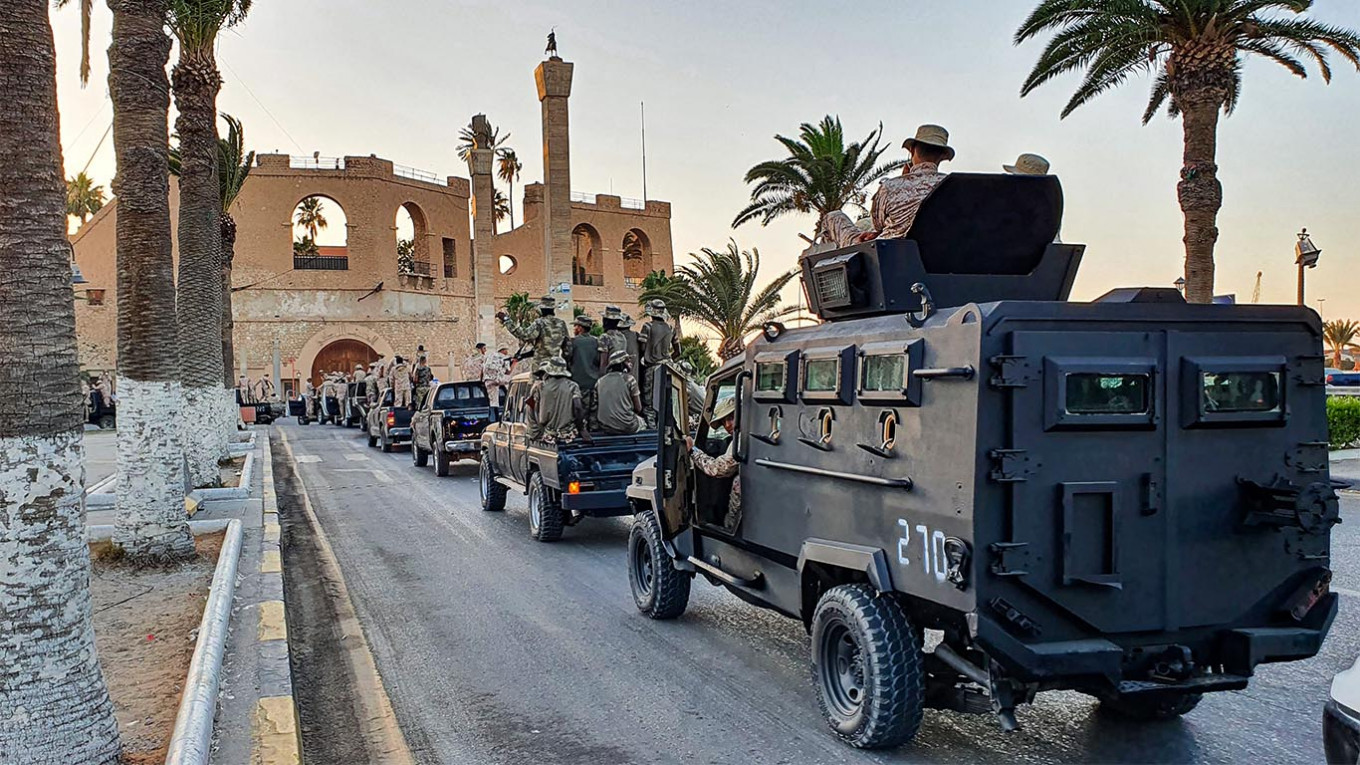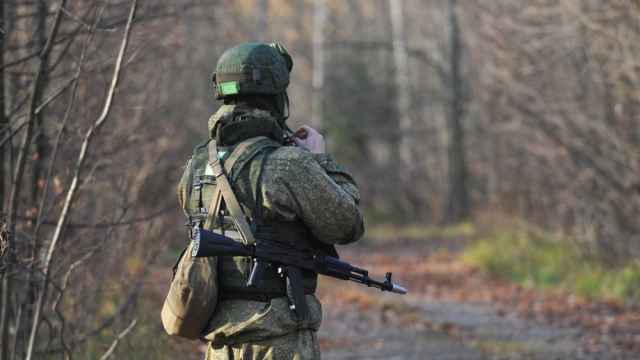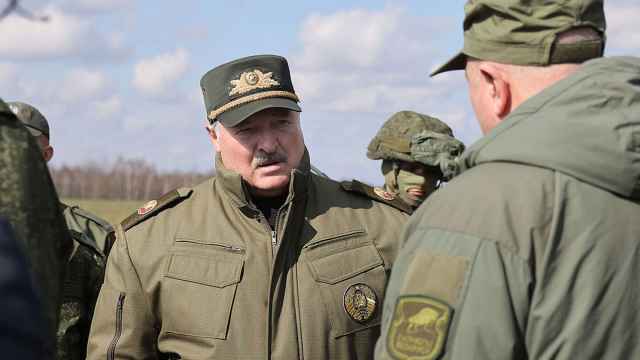The United States on Wednesday accused a Russian mercenary group of laying landmines in and around Tripoli and imposed sanctions over its alleged cooperation with Sudan's ousted dictator.
The Pentagon's Africa Command said it had "verified photographic evidence" that the Wagner Group, a private security operation allegedly sponsored by the Russian government, planted mines "indiscriminately" around Tripoli and toward Sirte east of the capital since mid-June.
"The Russian state-sponsored Wagner Group is demonstrating a total disregard for the safety and security of Libyans," Africom operations director Major General Bradford Gering said in a statement.
"The Wagner Group's irresponsible tactics are prolonging conflict and are responsible for the needless suffering and the deaths of innocent civilians. Russia has the power to stop them, just not the will."
The U.S. has repeatedly accused Russia of introducing military weaponry, including at least 14 MIG-29 fighter jets with their Russian markings covered up, into the Libyan conflict, contravening the UN arms embargo.
Russia, mainly through the Wagner Group, and the United Arab Emirates and Egypt, have backed the strongman of eastern Libya Khalifa Haftar, in his fight to seize power from the UN-recognized Government of National Accord in Tripoli.
Turkey's military support for the GNA has recently tipped the balance and allowed its forces in June to repel Haftar's 14-month advance on Tripoli and launch a counteroffensive.
Links seen to U.S. election, Sudan
The United States says the Wagner Group functions through support of Yevgeniy Prigozhin, a wealthy financier close to President Vladimir Putin.
The United States has previously accused Prigozhin of funding the Internet Research Agency, a mysterious "troll farm" in St. Petersburg accused of running online manipulation to back then-candidate Donald Trump in the 2016 election.
While Prigozhin is already under U.S. sanctions, the Treasury Department on Wednesday took action against entities in Sudan, Hong Kong and Thailand that it said had allowed the financier to maintain operations.
In Sudan, Prigozhin is accused of running M Invest, which the Treasury Department said was a front for the Wagner Group and was awarded concessions in gold mining by longtime ruler Omar al-Bashir.
It charged that M Invest developed plans for Bashir to suppress protests and carried out social media manipulation to discredit youth-led demonstrators, who started taking to the streets in December 2018 in frustration over economic conditions.
The effort ultimately failed with Bashir toppled in April 2019 after three decades in power and the military ultimately ceding to a transitional authority that involves civilians.
"Yevgeniy Prigozhin and his network are exploiting Sudan's natural resources for personal gain and spreading malign influence around the globe," Treasury Secretary Steven Mnuchin said in a statement.
"The United States remains committed to holding him and other bad actors accountable so Sudan and other countries can operate freely," he said.
The United States will freeze any U.S.-based assets of M Invest and other entities and make financial transactions with them a crime.
The Treasury Department said it was also targeting companies in Hong Kong and Thailand that carried out transactions worth more than $7.5 million to benefit Prigozhin.
The funds paid for his private aircraft and activities in Sudan, the Treasury Department said.
A Message from The Moscow Times:
Dear readers,
We are facing unprecedented challenges. Russia's Prosecutor General's Office has designated The Moscow Times as an "undesirable" organization, criminalizing our work and putting our staff at risk of prosecution. This follows our earlier unjust labeling as a "foreign agent."
These actions are direct attempts to silence independent journalism in Russia. The authorities claim our work "discredits the decisions of the Russian leadership." We see things differently: we strive to provide accurate, unbiased reporting on Russia.
We, the journalists of The Moscow Times, refuse to be silenced. But to continue our work, we need your help.
Your support, no matter how small, makes a world of difference. If you can, please support us monthly starting from just $2. It's quick to set up, and every contribution makes a significant impact.
By supporting The Moscow Times, you're defending open, independent journalism in the face of repression. Thank you for standing with us.
Remind me later.






